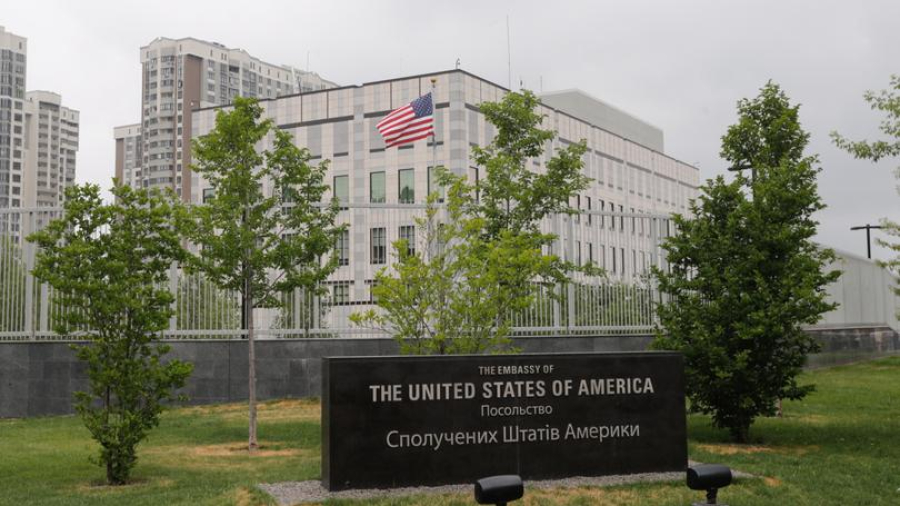The United States Embassy in Kyiv has temporarily closed, warning staff and American citizens of a “potential significant air attack” on the Ukrainian capital, following heightened tensions between Russia and Ukraine.
In a statement published on its website, the Embassy revealed that it had received specific intelligence about a potential strike on Wednesday, November 20. “Out of an abundance of caution, the Embassy will be closed, and Embassy employees are being instructed to shelter in place,” the statement read.
U.S. citizens in Kyiv were also urged to monitor local media, identify nearby shelters, and be prepared to take cover if air alerts are announced immediately.
This development came just days after President Joe Biden approved the use of U.S.-supplied long-range ATACMS missiles by Ukrainian forces to strike targets deep inside Russia. The missiles, with a range of 190 miles (300 km), marked a significant shift in the war’s trajectory, enabling Ukraine to retaliate against long-range Russian strikes for the first time.
The decision to allow the use of ATACMS followed months of debate within Washington. Russia has responded by relocating many of its fighter jets and strategic bombers away from airbases within missile range, although over 200 military facilities remain vulnerable along the 800-mile frontline.
The U.S. move was also seen as a message to North Korea, whose troops have reportedly bolstered Russian forces in recent weeks. U.S. officials confirmed that ATACMS would be used against both Russian and North Korean forces deployed in Russia’s Kursk region.
The presence of North Korean troops, the first deployment of its kind since the Korean War, added a new dimension to the conflict, raising concerns about an expanding alliance between Moscow and Pyongyang.
Ukraine’s military, bolstered by Western weaponry, made strides in recent months, including advances into Russia’s Kursk region. However, Russia began reclaiming ground, slowing Ukraine’s incursions and regaining momentum.
Ukraine’s recent offensives involved the use of U.K.-supplied Challenger 2 tanks and U.S.-manufactured weapons. The approval of ATACMS followed a series of incremental decisions by the U.S. and European allies to supply advanced weaponry, including Leopard 2 tanks and M1 Abrams earlier this year.
There was speculation that the U.K. and France may soon allow the use of Storm Shadow and SCALP missiles for strikes inside Russia, a move that could further shift the balance of power. While Le Figaro reported that the approval had already been given, official confirmation is yet to be made.
